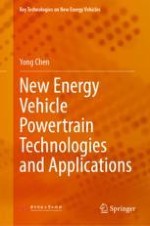2023 | OriginalPaper | Chapter
4. Energy Management Strategy Techniques for New Energy Vehicles
Author : Yong Chen
Published in: New Energy Vehicle Powertrain Technologies and Applications
Publisher: Springer Nature Singapore
Activate our intelligent search to find suitable subject content or patents.
Select sections of text to find matching patents with Artificial Intelligence. powered by
Select sections of text to find additional relevant content using AI-assisted search. powered by
